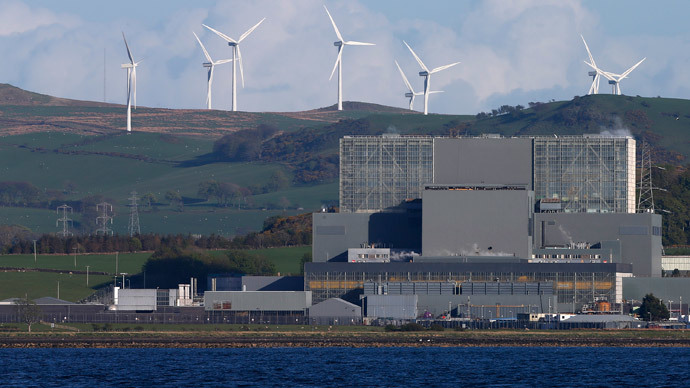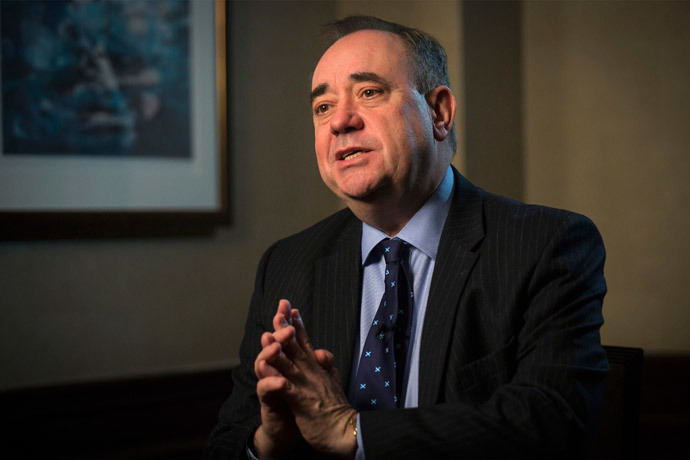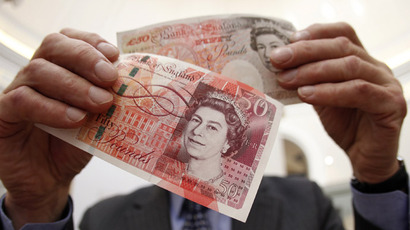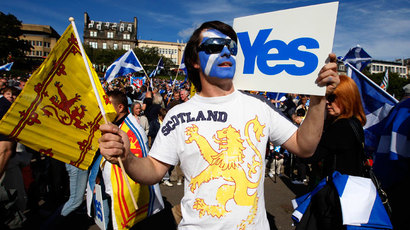Independent Scotland may lose UK as energy buyer

Britain may not choose to buy electricity from an independent Scotland if prices are higher than from other neighbors, the UK government said Wednesday. Ex-NATO chief Lord Robertson warned that only the UK’s enemies would benefit from a Yes vote.
An independent Scotland would have to sell electricity to the rest of Britain to sell its excess renewable energy generation because its electricity grid is mainly connected to England and, to a lesser extent, Northern Ireland.
Britain already imports electricity from France, the Netherlands and Ireland and is planning to build other cables to Belgium, Denmark and Norway, so it will have a range of partners from whom to buy energy.
In contrast, all of Scotland’s excess electricity is delivered to England, with a small cable to Ireland, which is rarely used for export.
“With a range of generation sources within its own borders and elsewhere, a continuing UK would not be obliged to purchase energy from an independent Scottish state,” the Department of Energy and Climate Change (DECC) said in a report.
The report also said that Scotland accounted for 10 percent of Britain’s electricity sales but received 28 percent of consumer-funded subsidies that support renewable energy.
Britain, which has a wider tax base than an independent Scotland would, could afford to offer better incentives to firms to extract the North Sea’s dwindling oil and gas reserves. All the fields that are relatively easy to get at have been exhausted and getting out what remains will require significant investment in new technology.
Alex Salmond, the leader of the pro-independence Scottish National Party, dismissed the claims and said Tuesday that Scotland was the most energy-rich nation in the EU per head of population.

“Independence would give responsibility for Scotland’s natural resources to the people who are most likely to harness them wisely – the people who live and work in Scotland,” he said.
The UK government’s warning that it may not want to buy Scottish electricity is the latest warning to attempt to persuade Scottish voters not to vote to leave Britain in the Sept. 18 referendum.
A warning by all the main Westminster political parties at the end of last month that an independent Scotland would not be able to keep the pound backfired as Scottish voters interpreted it as a form of blackmail and negative campaigning.
The warning from political bigwigs such as Nick Clegg and finance minister George Osborne came after Alex Salmond insisted that after a Yes vote the two countries would be able to agree a currency union.
But after the statements from Westminster saying that this could never happen, a number of polls showed support for independence up by at least 2 percent.
The warning shot over electricity comes a day after a speech at the Brookings Institution, a Washington-based think tank, by former NATO Secretary General Lord George Robertson, where he said that only the “forces of darkness” would benefit from a Scottish split from the UK, by which he meant the UK’s enemies.
“What could possibly justify giving the dictators, the persecutors, the oppressors, the annexers, the aggressors and the adventurers across the planet the biggest pre-Christmas present of their lives by tearing the United Kingdom apart?” he said.
Robertson, a Scot, said that in the event of a Yes vote the UK would find itself bogged down in a “torrid, complex and debilitating divorce” and that all people of the union in England, Wales, Northern Ireland and nearly half the Scots who voted against it would suffer.
He also rubbished insinuations by some in the nationalist camp that Scotland is in some ways a second partner in the union or oppressed by the English.
“It is not oppressed. It’s not discriminated against. It isn’t disadvantaged. Indeed, it’s the second most prosperous part of the United Kingdom outside of London and the southeast of England,” he said. “And that’s largely because we are part of the United Kingdom.”
In a nod to the large number of Scots in Westminster and the media and entertainment industries who profit greatly from being in the UK, he added: “Scots are prominent, some would say dominant, at every level of British life.”
He pointed out that at the moment with a devolved parliament Scotland has the best of both worlds.














